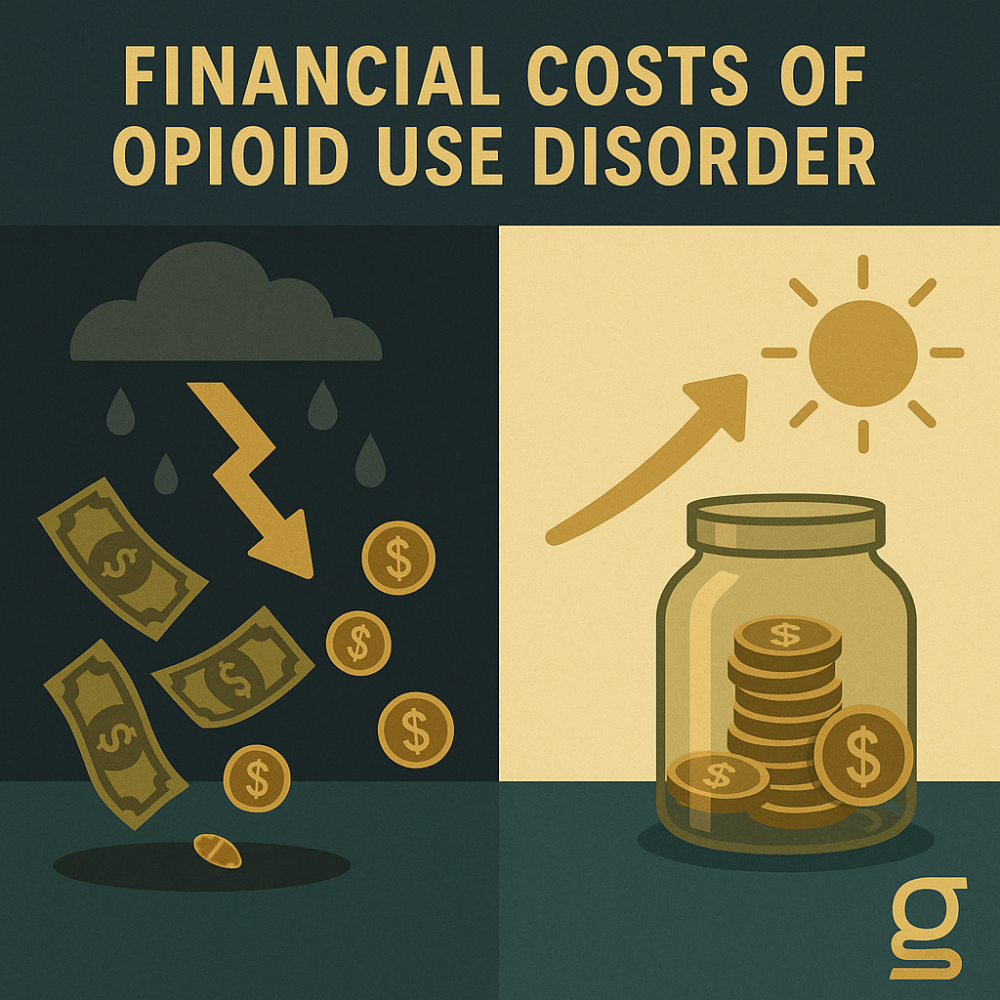Yoga is an ancient Indian practice seeking to connect the mind, body, and breath to improve physical and mental well-being. Using physical postures, meditation, and breathing techniques, practitioners of yoga strive to calm the mind and gain self-awareness.1
Many studies support the effectiveness of yoga for managing stress, a significant trigger for addictive behavior. Researchers have linked yoga to positive, physical changes in the brain. A study published in Scientific American found an increase in gray matter and enlargement of the regions of the brain that regulate stress in those who regularly practice yoga.2
Is There a Link Between Stress and Addictive Behavior?
Many researchers agree stress is a crucial risk factor for substance addiction and that poorly managed stress increases the risk of relapse.3 A study published in 2020 finds a strong correlation between chronic stress and a person’s motivation to use an addictive substance. The study finds a powerful link between early life adversity, such as chronic stress and trauma, and “impulsive and high-risk behaviors, such as drug use and relapse.”4
Stress and other extreme emotional states like depression, frustration, and anxiety caused by various stressors cause changes to the brain that may make an individual more vulnerable to substance use disorder.5 Having multiple stressors and poor coping mechanisms increases the risk of substance abuse and relapse after a period of sobriety.
About 40 to 60 percent of those in treatment for an alcohol or substance use disorder relapse within their first year of recovery. This relapse rate is similar to other chronic diseases, including hypertension and asthma.6 An inability to cope with stress and other negative emotions and a lack of self-efficacy plays a significant role in relapse.7
What Are the Health Benefits of Yoga?
The National Center for Complementary and Integrative Medicine (NCCIH) finds yoga may help practitioners improve their physical and mental health, citing the following research-backed benefits:8
- Help improve general wellness by relieving stress, supporting good health habits, and improving mental/emotional health, sleep, and balance.
- Relieve lower back pain, neck pain, and possibly pain from tension-type headaches and knee osteoarthritis.
- Help people who are overweight lose weight.
- Help people quit smoking.
- Help people manage anxiety or depressive symptoms associated with difficult life situations.
- Relieve menopause symptoms.
- Help people with chronic diseases manage their symptoms and improve their quality of life.
While all the above benefits are important, NCCIH experts emphasize studies that have suggested yoga is especially valuable for “several aspects of wellness, including stress management, mental/emotional health, promoting healthy eating/activity habits, sleep, and balance,” all of which impact a person’s susceptibility to addiction and relapse.
How is Yoga Used in Addiction Recovery?
Many highly regarded addiction treatment centers now incorporate yoga into their detox and addiction recovery programs, finding it not only helps people stay “calm and grounded” throughout detox but also helps them reconnect with healthy physical sensations.9
By introducing those in recovery to a practice that enables them to effectively manage the physical or psychological aspects of stress, promote a positive mental outlook, and improve symptoms of anxiety or depression, therapists are providing them with lifelong tools to achieve and maintain sobriety, even in the event of challenging life situations.10
Traditional recovery treatment plans often include individual, group, and family counseling, 12-step or similar support groups, medication management (if applicable), and aftercare programs designed to help the recovering person achieve sobriety and improve and maintain their physical and mental health.11
Many addiction recovery specialists have found that by adding holistic practices like yoga and mindfulness to evidence-based treatments like Cognitive Behavioral Therapy (CBT) and Medication Assisted Therapy (MAT), individuals are better equipped to manage stress, improve self-awareness, and manage triggers to addictive behavior.12
Yoga also plays a vital role in cleansing the body of toxins, which is especially beneficial during the detoxification process. Muscular contractions triggered by specific yoga poses filter and remove waste from the body as they increase the circulation of beneficial bodily fluids, spurring the lymphatic system to filter and eliminate toxins from the body.13
Detox can be frightening for many people, causing rapid heart rate, extreme anxiety, and more. Yogic breathing during drug or alcohol detoxification can significantly reduce heart rate, lower blood pressure, improve oxygen saturation, and decrease anxious feelings.14,15
A narrative review of multiple studies evaluating yoga as a treatment modality found the complementary practice to be a valuable adjunct to traditional therapeutic approaches. Studies concluded the practice is effective in both inpatient and outpatient settings, helping participants stop using their addictive substance, manage triggers and cravings, and maintain abstinence.16
Citing multiple “well-designed” studies on the inclusion of complementary practices like yoga and mindfulness in treatment programs for smoking, alcohol dependence, and illicit substances, a peer-reviewed paper published on the National Library of Medicine website concluded, “mindfulness-based interventions, some of which include yoga, have sound conceptual underpinnings and growing empirical support for enhancing addiction treatment, prevention, and recovery.”17
The wealth of scientific studies make it clear — integrating complementary practices like yoga into a person’s addiction treatment plan adds a valuable dimension to the rehabilitation process. Yoga and other holistic practices, like mindfulness or meditation, are tools a recovering person can use throughout their lifetime. People who incorporate healthy living practices into their lives are far less likely to abuse addictive substances.
The first step to recovery starts with detoxification. Contact Gallus Medical Detox Centers to learn how our proprietary, evidence-based medical protocols, known as the Gallus Method, can help rid your body of addictive substances safely and comfortably.
Once you have completed medical detox, our addiction recovery experts will help you find the rehabilitation treatment plan that best fits your needs. Your long-term success is our goal, and we will do everything in our power to help you achieve that goal.
Complete our confidential assessment questionnaire to see if medical detox is right for you or your loved one.
Sources
- https://www.nccih.nih.gov/health/yoga-what-you-need-to-know
- https://www.scientificamerican.com/article/how-yoga-changes-the-brain/
- https://pubmed.ncbi.nlm.nih.gov/23541000/
- https://pubmed.ncbi.nlm.nih.gov/32451001/#:~:text=Preclinical%2C%20clinical%2C%20and%20population%20research%20demonstrates%20that%20stress,this%20association%20extends%20to%20young%20populations%20%28e.g.%2C%20adolescents%29
- https://static1.squarespace.com/static/56a82ee7cbced65a76494a7d/t/5dd69b300e89843019ed9f68/1574345520835/2019+McGrath+%26+Briand+NBBR.pdf
- https://nida.nih.gov/publications/drugs-brains-behavior-science-addiction/treatment-recovery
- https://www.indianjpsychiatry.org/article.asp?issn=0019-5545;year=2018;volume=60;issue=8;spage=473;epage=478;aulast=Menon
- https://www.nccih.nih.gov/health/yoga-what-you-need-to-know
- https://www.yogajournal.com/lifestyle/health/higher-ground/
- https://www.nccih.nih.gov/health/providers/digest/yoga-for-health-science
- https://www.samhsa.gov/find-help/recovery
- https://www.ncbi.nlm.nih.gov/pmc/articles/PMC6390289/
- https://www.gaia.com/article/yoga-lymphatic-circulation
- https://www.ncbi.nlm.nih.gov/pmc/articles/PMC3655580/
- https://www.sciencedirect.com/science/article/pii/S0975947617303224
- https://www.sciencedirect.com/science/article/abs/pii/S1876201816303860?via%3Dihub
- https://www.ncbi.nlm.nih.gov/pmc/articles/PMC3646290/


 Steve B
Steve B 

 Casey Wilson
Casey Wilson